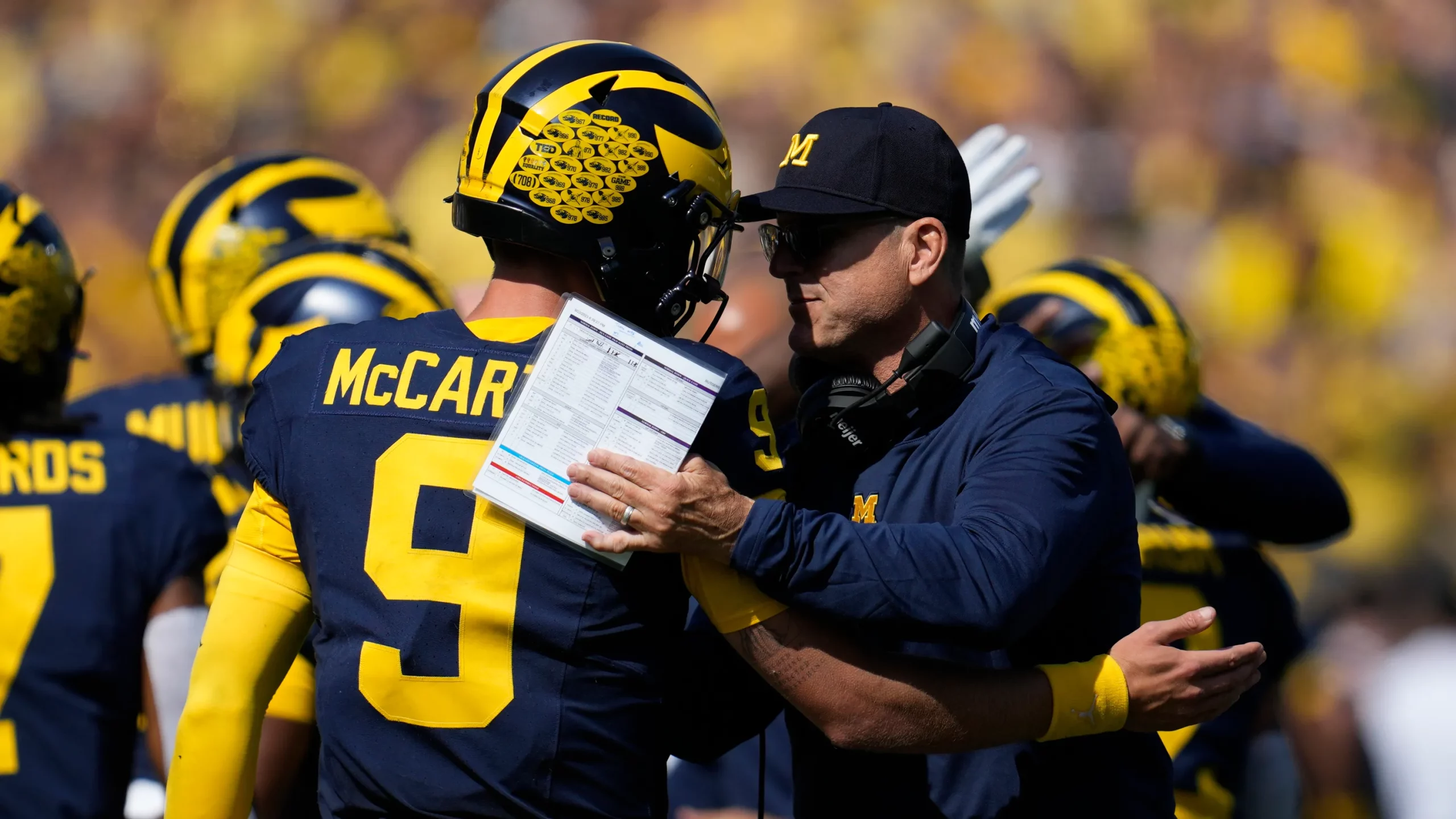It is alleged that Michigan stole the signs of another club. This is why its coach was just suspended for three games.
![]()
The University of Michigan football team, which is one of the favorites to win the national title, is entangled in a purported sign-stealing operation that includes illegal in-person scouting of opponents dating back up to three seasons.
While the second-ranked Wolverines (9-0) continue their season, the NCAA and the Big Ten Conference, of which Michigan is a member, have been investigating the claims for at least three weeks. Jim Harbaugh, the coach, has denied having any knowledge of any unethical scouting tactics used in his team.
Weeks, if not months, will probably pass as the NCAA looks into this. Following a career in Major League Baseball and television, Big Ten Commissioner Tony Petitti chose to move more quickly: In the team’s final three regular-season games, which include Saturday’s matchup against No. 9 Penn State, he forbade Harbaugh from coaching.
![]()
Following up on its threat to contest any penalty in court, Michigan filed a request for a court order late on Friday. Earlier in the season, Harbaugh was suspended by the university for three games due to a separate NCAA breaches case involving recruiting that is still pending; his team won all three games during that suspension.
Football teams are not prohibited by NCAA or Big Ten rules from attempting to read each other’s play-calling signals. It is acknowledged that there will be observers on the sidelines searching for hints as teams face off.
Teams take great care to safeguard their signals, yet it can be difficult to determine the precise worth of possessing signals from another team. Since no-huddle offenses became the standard in college football, coaches claim it has spread like wildfire.
However, since not every school could afford to do so, the NCAA has clearly enforced rules prohibiting in-person, advanced scouting of opponents during the season. These prohibitions date back to the mid-1990s. The NCAA forbids using electronic devices to record signals from opposing teams.
